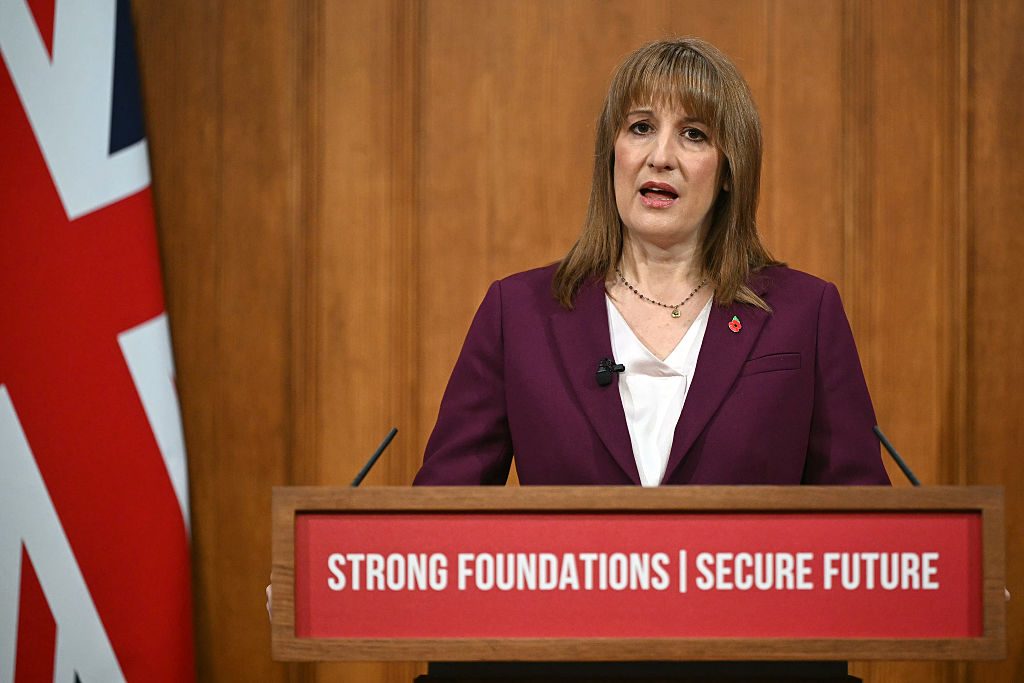One can’t help but wonder whether Rachel Reeves takes the British public for fools. Late last night news broke that after preparing the nation for tax rises in one of her typically gloomy speeches earlier this month, the Chancellor had changed her mind. Instead of the previously briefed plan to raise income tax rates in return for a cut to National Insurance contributions, she will apparently revert to her standard playbook of fiddling with the tax system to raise revenue while maintaining the illusion that she isn’t raising taxes.
Among the measures mooted are a “smorgasbord” approach involving a series of targeted tax rises that stick to the letter if not the spirit of her pledge not to touch working people, and freezing or possibly even cutting the threshold at which Britons begin to pay a higher rate of tax. The latter approach, known as fiscal drift, means that as their nominal income rises with inflation, people get dragged into a higher tax band even if, in real terms, their income has declined. Paul Johnson, who until this year was director of the Institute for Fiscal Studies, points out that the measure would raise the share of the population paying the higher rate of tax from one in 10 to one in four. If that isn’t raising taxes on working people, what is?
It was evident all along that this constant fiddling and fudging would define Reeves’s tenure until she finally came clean with the British public: the pledge she made during last year’s election campaign, to restore public services without raising taxes on working people, simply didn’t add up. While the U-turn has been attributed to an improved fiscal forecast, suspicions remain that it was partly a response by the Government by Keir Starmer’s weakening hold on power.
A briefing operation earlier this week against Health Secretary Wes Streeting, attributed to No. 10 and whose ostensible purpose was to head off a suspected challenge for the party’s leadership, failed disastrously, leaving the Prime Minister looking even weaker than before. If he and his Chancellor have back-pedalled on plans because they know they can’t get them by a restive parliamentary party, anxiety will only grow that the Government can’t do much of anything. That will then inevitably raise the question: why keep this government at all?
Until now, Reeves’s position was considered secure because she retained the faith of bond investors. If she was sacrificed, it was said, they’d revolt. But these constant changes are apparently starting to wear on lenders’ patience too, not least because changing Budget plans two weeks out from their announcement looks to be the work of a floundering government.
This morning, after the report broke, UK gilt yields leapt and the pound slumped, before stabilising slightly following the news of an improved forecast. So while Reeves came to office determined to restore Britain’s sterling reputation for financial management, which had been badly damaged by the Liz Truss affair, she appears to be failing at that task.
The widespread view in Westminster is that the Prime Minister and Chancellor have six months to turn things around and prove that they have a plan to fulfil the promises they made. It looks less likely by the day they’ll meet that goal. The odds that Starmer will be replaced as leader and Prime Minister in 2026, which had hovered around one in five for most of this year, this week shot up above 50:50. Make of that what you will.











Join the discussion
Join like minded readers that support our journalism by becoming a paid subscriber
To join the discussion in the comments, become a paid subscriber.
Join like minded readers that support our journalism, read unlimited articles and enjoy other subscriber-only benefits.
Subscribe